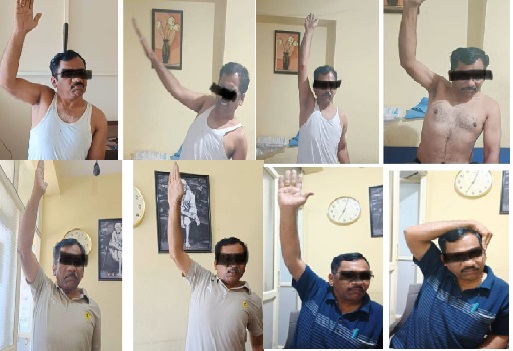Role of the Agnikarma in the Management of Frozen Shoulder
DOI:
https://doi.org/10.47070/ijapr.v11i12.3058Keywords:
Frozen shoulder, Agnikarma, AvabahukaAbstract
Shoulder joint discomfort and stiffness are indicators of frozen shoulder, which is also referred to as adhesive capsulitis. Symptoms and signs usually begin gradually subsiding before getting more severe. Frozen shoulder is a condition that is more prevalent in women than in men, particularly those between the ages of 40 and 60. Furthermore, individuals with diabetes are at an increased risk of developing frozen shoulder. Inflammation is the most common cause of frozen shoulder, which is characterized by swelling, pain, and irritation of the tissues surrounding the joint. The underlying cause of this ailment is not yet definitively understood. It is estimated that 2 to 5 percent of the general population will experience frozen shoulder at some point in their lives, with 8.2 percent of males and 10.1 percent of working-age women affected by it. This condition can affect one or both shoulders, and typically resolves on its own within one to two years. Depending on the severity of the disease, a combination of NSAIDs, steroids, physiotherapy, and surgical intervention may be recommended by modern medicine. Ayurveda has suggested Agnikarma as a potential treatment for frozen shoulder, as it was believed to be an effective therapy for Avbahuka. Frozen shoulder and Avbahuka may present with similar symptoms and indicators. Agnikarma, a distinct technique described in Ayurvedic texts, is used to treat Avbahuka that is caused by Dhatukshayajanya vata prakopa. Therefore, the aim of this research was to examine the therapeutic effects of Agnikarma in cases of frozen shoulder in Avabahuka.
Downloads



